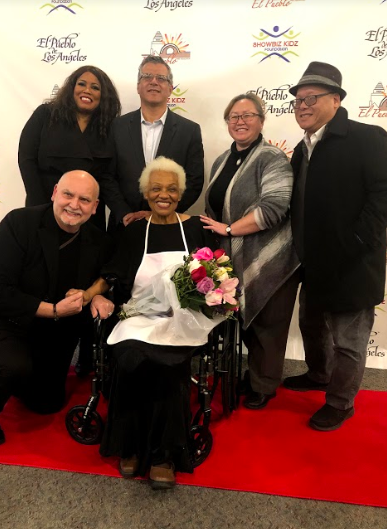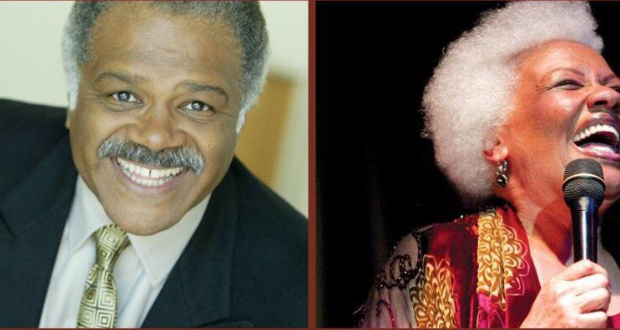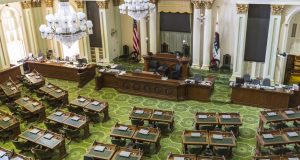A special reading of the Ted Lange’s play, “The Heart of Biddy Mason” took place in the heart of Downtown Los Angeles at The Pico House at El Pueblo Historical Monument. The reading was conducted by musicians who were part of the Barbara Morrison Trio.

ABOUT BIDDY MASON:
Biddy Mason was a former slave, nurse/ midwife, successful entrepreneur, humanitarian and founder of Los Angeles’s first African-American congregation. Bridget “Biddy” Mason was born a slave in Aug. of 1818 on a Georgia plantation owned by Robert Marion Smith and his wife Rebecca (Crosby) Smith. Mason had three daughters, Ellen, Ann and Harriet, whose father was reputedly Smith himself. In 1847, Smith became a Mormon convert and decided to move to the Utah Territory with his household and slaves. In the strenuous two-thousand miles cross-country, Mason was responsible for herding the cattle, preparing the meals and acting as mid-wife along with taking care of her own children. It is said that Mason walked behind her master’s 300-wagon caravan from Mississippi to Southern California. In 1851, Smith moved his household again, this time to San Bernardino, Ca. Smith sensed that Mason and her three daughters might seek their freedom in California, therefore he planned to take them back South. Luck came for Mason and her daughters after arriving in California, discovering that slaves were free in that state. She petioned a court in 1856 for her and her daughters freedom. A Sheriff asked Smith to appear in court to prove ownership of the family. He failed to appear in court and Mason won freedom for herself and her daughters. She and her daughters moved to Los Angeles where she found employment as a nurse and midwife. Hard work and her nursing skills allowed Mason to become economically independent. She later bought a site in what is now downtown Los Angeles on Spring St. for $250, becoming the first African-American woman to own land in Los Angeles. In 1884, Mason sold a parcel of her land for $1500 and built a commercial building with spaces for rental on the remaining land. She continued making wise decisions in her business and real estate transactions and her financial fortunes continued to increase until Mason had accumulated a fortune of almost $300,000. Mason gave generously to various charities and provided food and shelter for the poor of all races. She also remembered those in prison whom she visited often. In 1872, she and her son in-law, Charles Owens, founded and formed the Los Angeles branch of the First A.M.E. Church, Los Angeles’s first African-American congregation which began having services in Mason’s living room. Bridget “Biddy” Mason died in Los Angeles on Jan. 15, 1891 and was buried in an unmarked grave in Evergreen Cemetery. By the time Mason had died, the property, she owned had become the heart of Los Angeles’s financial district and was worth $250,000. On March 27, 1988, nearly a century after Mason’s death, a tombstone was unveiled at a ceremony which marked her grave for the first time. The ceremony was attended by Mayor Tom Bradley and about three thousand members of the First A.M.E. Church. On November 16, 1989, the citizens of Los Angeles declared a Biddy Mason Day and a memorial of her achievement was unveiled at the Broadway Spring Center located between Spring St. and Broadway at Third St. in Los Angeles.
 Westside Story Newspaper – Online The News of The Empire – Sharing the Quest for Excellence
Westside Story Newspaper – Online The News of The Empire – Sharing the Quest for Excellence




